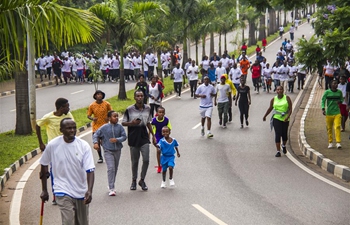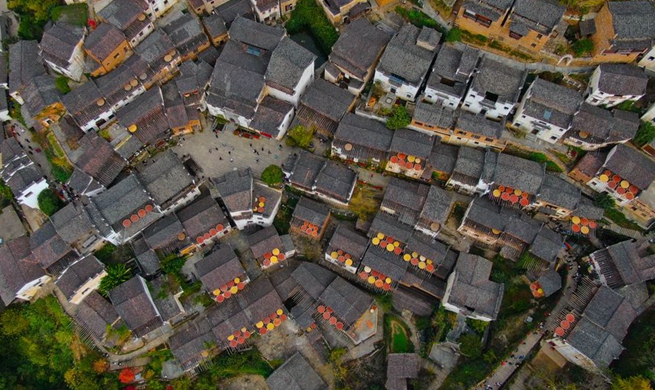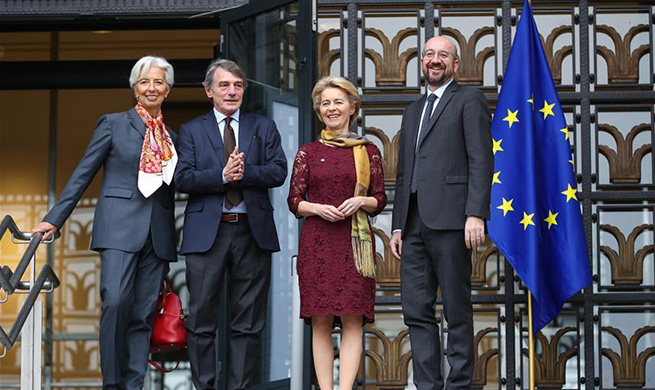By Xinhua writers Wang Xiaopeng and Wang Hongjiang
NAIROBI, Dec. 1 (Xinhua) -- Great progress has been made in the fight against HIV in the last decade, but preventing new infections is a significant challenge, Peter Sands, executive director of the Global Fund to Fight AIDS, Tuberculosis and Malaria (Global Fund) said.
Overall HIV incidence rates are declining, but the total number of infections is still unacceptably high, with 1.7 million new infections in 2018, the World Health Organization (WHO) data showed.
"This number is not dropping fast enough to meet the UNAIDS target of fewer than 500,000 people infected per year by 2020," said Sands.
"We are at a crucial stage in the fight against HIV," Sands told Xinhua days before the World AIDS Day, designated on Dec. 1 every year by WHO since 1988.
"At the Global Fund, we are making extra efforts to address the needs of adolescent girls and young women in eastern and southern Africa, who are disproportionately affected by HIV, twice as likely to be infected with HIV than their male peers," he said.
Working together with other organizations, the Global Fund has increased investments in programs for adolescent girls and young women fivefold in the 2017-2019 period, to some 200 million U.S. dollars, supporting programs that aim to reduce new HIV infections, reduce violence, and unintended pregnancies among 1 million adolescent girls and young women in 13 hardest-hit countries in Africa, according to him.
Sands said, Africa's population will continue to grow in the coming decades.
"Both international and domestic investments in health are vital to ensuring that we end the high infections among young women and girls, which is pivotal to ending the epidemic."
He said, prevention is key to ending the HIV epidemic. "We will only beat HIV if we tackle the stark structural gender inequalities that make adolescent girls and young women in sub-Saharan Africa disproportionately affected by the virus."
Significant progress has been made as HIV new infections decline and more people living with HIV gain access to treatment, according to a new report released recently by the Joint United Nations Programme on HIV/AIDS (UNAIDS).
New HIV infections declined by 28 percent from 2010 to 2018 in eastern and southern Africa, said the UNAIDS report.
"We have come a long way since in the fight against HIV in the last decade. Just over a decade ago, being infected with HIV then seemed like receiving a death sentence," Sands said.
Sands hailed China's efforts in the fight against HIV/AIDS. In September 2018, during the Beijing Summit of the Forum on China-Africa Cooperation, public health was identified as a top priority for China-Africa health cooperation.
"China can play a leading role, as a strong model for providing quality health care domestically, and as an international leader on many global challenges," said Sands.













